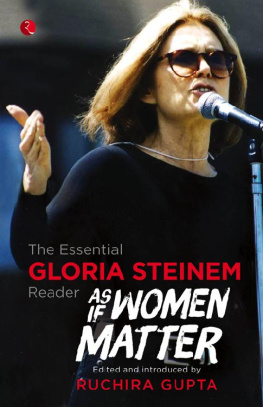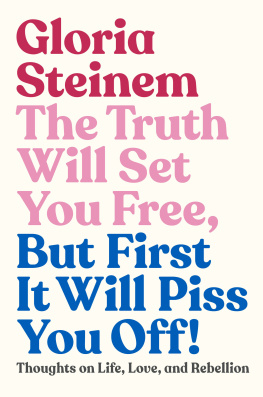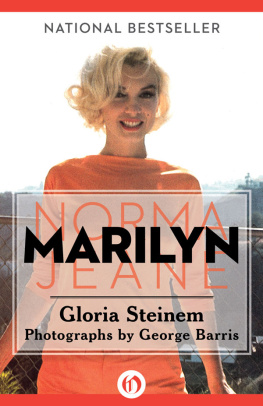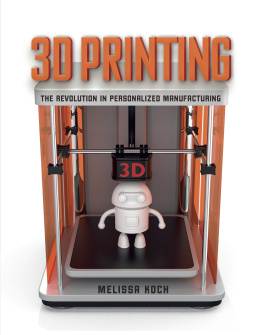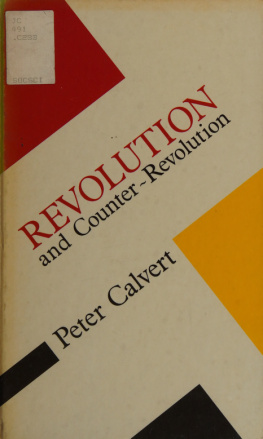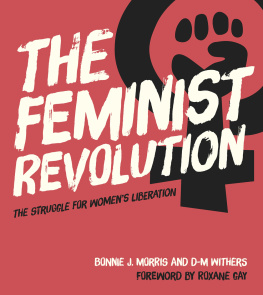Gloria Steinem - Revolution from Within: A Book of Self-Esteem
Here you can read online Gloria Steinem - Revolution from Within: A Book of Self-Esteem full text of the book (entire story) in english for free. Download pdf and epub, get meaning, cover and reviews about this ebook. year: 1993, publisher: Little, Brown and Company, genre: Politics. Description of the work, (preface) as well as reviews are available. Best literature library LitArk.com created for fans of good reading and offers a wide selection of genres:
Romance novel
Science fiction
Adventure
Detective
Science
History
Home and family
Prose
Art
Politics
Computer
Non-fiction
Religion
Business
Children
Humor
Choose a favorite category and find really read worthwhile books. Enjoy immersion in the world of imagination, feel the emotions of the characters or learn something new for yourself, make an fascinating discovery.

- Book:Revolution from Within: A Book of Self-Esteem
- Author:
- Publisher:Little, Brown and Company
- Genre:
- Year:1993
- Rating:5 / 5
- Favourites:Add to favourites
- Your mark:
- 100
- 1
- 2
- 3
- 4
- 5
Revolution from Within: A Book of Self-Esteem: summary, description and annotation
We offer to read an annotation, description, summary or preface (depends on what the author of the book "Revolution from Within: A Book of Self-Esteem" wrote himself). If you haven't found the necessary information about the book — write in the comments, we will try to find it.
Revolution from Within: A Book of Self-Esteem — read online for free the complete book (whole text) full work
Below is the text of the book, divided by pages. System saving the place of the last page read, allows you to conveniently read the book "Revolution from Within: A Book of Self-Esteem" online for free, without having to search again every time where you left off. Put a bookmark, and you can go to the page where you finished reading at any time.
Font size:
Interval:
Bookmark:

This book is intended for everyonewomen, men, children, and even nationswhose power has been limited by a lack of self-esteem.
It is dedicated to anyone who respects the unique self inside a child,
and inspired by women, whose self-esteem is making the deepest revolution.
You have come here to find what you already have.
BUDDHIST APHORISM
The last thing we find in making a book is to know what we must put first.
BLAISE PASCAL
The idea for this book began a decade ago when even I, who had spent the previous dozen years working on external barriers to womens equality, had to admit there were internal ones, too. Wherever I traveled, I saw women who were smart, courageous, and valuable, who didnt think they were smart, courageous, or valuableand this was true not only for women who were poor or otherwise doubly discriminated against, but for supposedly privileged and powerful women, too. It was as if the female spirit were a garden that had grown beneath the shadows of barriers for so long that it kept growing in the same pattern, even after some of the barriers were gone.
Yet when I looked for books on self-esteem to recommend, I found that, though many offered helpful advice, they focused on either the inner or the outer part of change: The inner books were the more spiritual and New Age ones, with an important message about the worth of each human being, but with little mention of the external structures that undermine this worth in order to assure their own authority. The outer books told women how to look better, deal with stress better, and succeed in our many roles, but rarely mentioned that womens self-esteem might be damaged by the very expectation of filling all those roles; or that, if success alone could create self-esteem, there wouldnt be so many powerful men out there whose appetite for ever more success is insatiable, precisely because they feel an inner void that cant be filled.
Finally, with important exceptions (see the Somehow, that hadnt been my experience.
So I set out to research current thinking on the factors that affect self-esteem, and to combine this research with the experience of individual women. There were new studies on the long-lasting effects of alcoholism in our families, and a new willingness to believe in the frequency with which sexual abuse occurs in childhood. In many fields, the idea that hallmarks of low self-esteem werent normal female characteristics was just beginning to be absorbed, and was producing some basic rethinking about such things as education for women and girls. I combined this research with womens personal stories, which are, like all personal accounts of any group that has been marginalized, our best textbooks: the only way to make our experience central.
But right away, this book had a mind of its own. It decided it had to be for men, too. After all, its men with low self-esteem who give women (and other men) the most problems, from subtle condescension to grandiosity and outright violence; yet they are neglected as readers when they do look for help. I found many books directed at womens disease of empathy sickness (knowing what other people are feeling better than we know what we are feeling) but few for men with an empathy deficiency (an inability to know what other people are feeling, which causes men to get blindsided by emotionssometimes even their own). There were books about low expectations for women in the public sphere, but almost none about low expectations for men in the private one; many books to comfort women trying to play a double role at home and on the job, but few for men whose work was killing them because they had no lives outside it. Even the welcome new books about mens regret at not having had nurturing fathers, and their resulting need to bond with other men, included no corresponding sentiment of regret for the inequality of their mothers, and mens resulting inability to bond with women as equals.
The more I talked to men as well as women, the more it seemed that inner feelings of incompleteness, emptiness, self-doubt, and self-hatred were the same, no matter who experienced them, and even if they were expressed in culturally opposite ways. I dont mean to gloss over the difficulties of equalizing power, even when there is the will to do so: to the overvalued and defensive, the urge to control and dominate others may be as organic as a mollusks shell; and to the undervalued and resentful, the power to destroy the self (and others who resemble the self) may be the only power there is. But at both extremesas well as in the more subtle areas between, where most of us struggle every daypeople seemed to stop punishing others or themselves only when they gained some faith in their own unique, intrinsic worth. Making male readers feel welcome, this book decided, was the least it could do.
With this in mindand with time newly freed by the fact that Australian feminists had taken on the responsibility for Ms., the magazine that had been my major commitment for seventeen yearsI spent months researching and interviewing, and more months writing 250 pages of psychological research, anecdotal examples, and philosophical prose. It was a peaceful time of sitting at my computer with my cat on my lap, traveling and tummeling less than I had at any time since I was in college, and finally having time to write something longer than an article.
Too peaceful. When Carmen Robinson, a friend from Montreal who is a family therapist, read that labored-over manuscript, she said, I dont know how to tell you thisbut I think you have a self-esteem problem. You forgot to put yourself in.
And it was true. I had lost my voice, as writers say. It was as if I had been walking on a plate of glass just above the real world, able to see but not touch it. I began to understand with a terrible sureness that we teach what we need to learn and write what we need to know. I had felt drawn to the subject of self-esteem not only because other people needed it, but because I did. I had come to the burnt-out end of my ability to travel one kind of feverish, productive, but entirely externalized roadand I had no idea why.
But at the time Carmen identified this underlying problem for me, I also had a more immediate crisis. If you want to imagine what might be called a situational or perhaps a traumatic self-esteem problem, try thinking about a writer who has spent years with no time to write, feels she has an unwritten book in every toe and elbow and tooth, finally achieves the enormous luxury of enough solitude in which to begin, and then blows it on 250 of the wrong pages. Just at that moment, I also got a letter from something called The Keri Report: Confidence and the American Woman, a nationwide survey of 6,000 men and women sponsored by a hand-cream company, informing me that I had been named one of the ten most confident women in the United States. It made me realize all over again what deep shit women were really in. Worst of all, I happened to open a paperback from college and discovered a note I had scribbled there: Most writers write to say something about other peopleand it doesnt last. Good writers write to find out about themselvesand it lasts forever. It was humblingeven depressingto discover that I knew more in college than I did so many years later.
In the empty months that followed, I gave up those elaborate and intellectualized pages, but it took much longer for me to give up my image of myself as someone who helped other people through crises and never had any of my own. I began to realize that this writing crisis had been one of an underground series of them, some past and unsuccessfully buried, some present and deniedall of which were trying to tell me something. I had felt burnt out many times in the past twenty years, like so many people in social-justice movementsespecially in the feminist movement, to which women bring the very training in selflessness we are trying to changeyet unlike other women with more self-vision, I believed so little in my own inner world that I couldnt stop to replenish it. Like a soldier who is wounded but wont lie down for fear of dying, I just kept marching. Why? Well, if I stopped, I would have given up the way I made myself realthat is, by being useful to people in the outside worldjust as I had made myself real as a child by keeping so busy that I numbed the sad unreality at home where I looked after my mother.
Font size:
Interval:
Bookmark:
Similar books «Revolution from Within: A Book of Self-Esteem»
Look at similar books to Revolution from Within: A Book of Self-Esteem. We have selected literature similar in name and meaning in the hope of providing readers with more options to find new, interesting, not yet read works.
Discussion, reviews of the book Revolution from Within: A Book of Self-Esteem and just readers' own opinions. Leave your comments, write what you think about the work, its meaning or the main characters. Specify what exactly you liked and what you didn't like, and why you think so.

